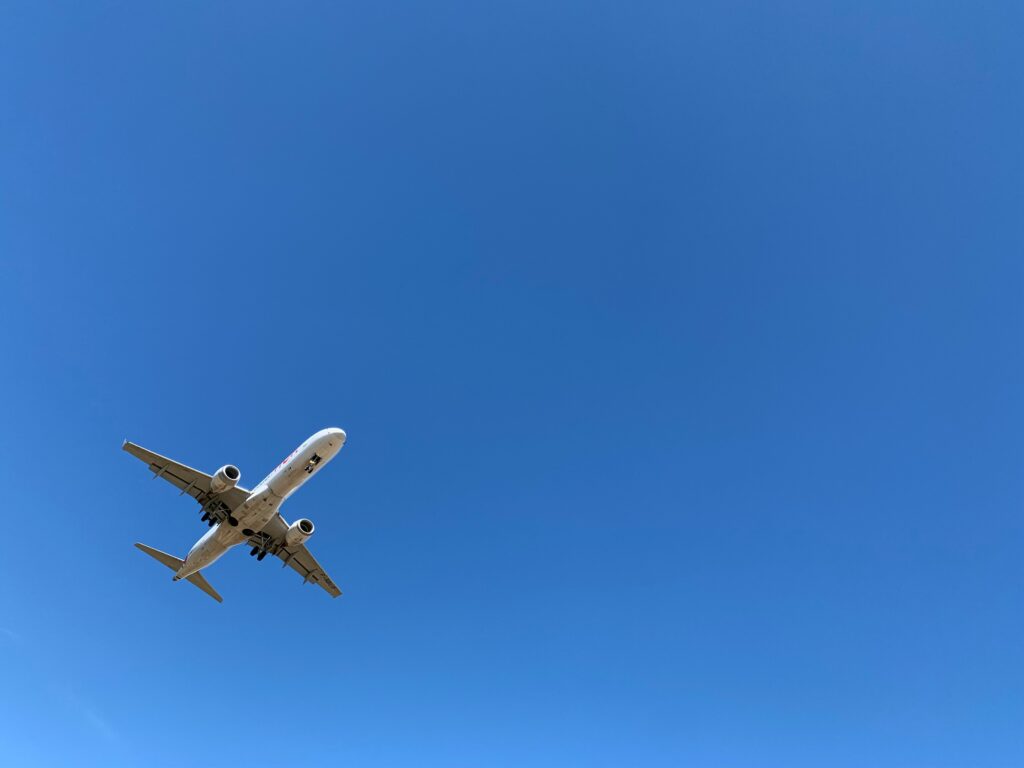Traveling by plane can be exciting, but long flights — especially those lasting over 6 hours — can quietly stress your body in ways that many travelers don’t notice until it’s too late. Dehydration, blood clots, jet lag, and even immune suppression are just a few risks.
This guide explores what happens to your body during a long flight, and how to protect yourself using simple, natural strategies backed by science.
1. What Happens to Your Body in the Air
Once the plane reaches cruising altitude, your body enters an unfamiliar environment: pressurized air, dry cabin atmosphere, and limited movement — all of which affect core systems like hydration, circulation, and immunity.
1.1 Dehydration Sets in Quickly

The cabin air is usually drier than the Sahara Desert — with humidity levels as low as 10–20%, compared to 30–60% in most homes. This causes your body to lose fluids faster than usual, leading to mild to moderate dehydration.
Symptoms may include:
- Dry mouth and lips
- Fatigue or lightheadedness
- Headache
- Dry eyes
Dehydration also makes you more prone to jet lag and constipation, which many travelers experience post-flight.
Tip: Avoid caffeine and alcohol, which are both diuretics and worsen fluid loss.
1.2 Circulation Slows and Blood Clots Can Form
Remaining seated for hours restricts blood flow — especially in the legs — which may lead to deep vein thrombosis (DVT). This is a serious condition where blood clots form in the deep veins of the legs, potentially traveling to the lungs (pulmonary embolism).
High-risk groups include:
- People over 60
- Pregnant women
- Those with prior clotting disorders
- Smokers
- People with limited mobility
To prevent DVT:
- Stand and walk every 1–2 hours
- Do seated leg exercises like ankle rolls or heel lifts
- Wear compression socks if you’re at risk
Important: Even healthy people can experience poor circulation on long flights.
1.3 Reduced Oxygen = Fatigue + Brain Fog
Even though airplane cabins are pressurized, the air still has lower oxygen levels than sea level. The cabin pressure is equivalent to being at around 6,000–8,000 feet altitude.
This leads to:
- Lightheadedness
- Slower cognitive function
- Headache
- Sleepiness
While not dangerous for most people, those with heart, lung, or blood disorders should speak with a healthcare provider before flying.
1.4 Immune Function Drops Mid-Flight
Your immune system becomes more vulnerable during long flights due to dehydration, low oxygen, poor sleep, and exposure to germs in recycled air.
A 2018 study published in BMC Infectious Diseases found that passengers within 2 rows of a sick person are more likely to catch infections like the flu.
To reduce the risk of getting sick:
- Stay hydrated
- Avoid touching your face
- Wipe down your tray table and seatbelt with disinfectant wipes
- Get good sleep before and after the flight
2. Natural Ways to Stay Healthy During Long Flights

You don’t need medicine to protect yourself from flight-related health issues. Many natural methods can help your body stay balanced, energized, and well.
2.1 Hydrate Constantly
Aim to drink at least 8 ounces (240 ml) of water every hour of your flight. Start hydrating 1–2 days before your trip.
Choose:
- Still water
- Coconut water
- Herbal tea
Avoid:
- Coffee
- Soda
- Alcohol
Bring a refillable water bottle and ask flight attendants to top it up during the flight.
2.2 Keep Blood Moving
Even small movements help improve blood flow and reduce stiffness. You can try in-seat stretches like:
- Knee lifts
- Toe taps
- Calf raises
- Shoulder rolls
If possible, get up and walk the aisle every 1–2 hours.
Bonus: Standing in the galley for 2–3 minutes while stretching helps reduce lower back pain.
2.3 Sleep Naturally
To support healthy, natural sleep:
- Use an eye mask and earplugs
- Avoid screen time for 30 minutes before sleeping
- Try breathing techniques like the 4-7-8 method
- Use a neck pillow to avoid awkward posture
Avoid over-the-counter sleep meds, which can cause grogginess and worsen jet lag.
Herbal options: Chamomile or lavender tea can promote calmness.
2.4 Eat Simple, Light Food
Heavy meals and salty snacks can lead to bloating, gas, and discomfort at high altitudes due to changes in cabin pressure.
Good snack options:
- Fresh fruit (apple slices, grapes)
- Raw nuts
- Whole grain crackers
- Light sandwiches with vegetables
Avoid processed foods high in sodium or sugar. Eat smaller meals more often to support digestion.
2.5 Support Your Immune System
In addition to good hygiene, support your immune system naturally by:
- Sleeping well before the flight
- Taking a brisk walk before boarding
- Eating probiotic-rich foods like yogurt before your trip
- Practicing mindful breathing to reduce cortisol (stress hormone)
You can also rinse your nose with saline spray mid-flight to keep mucous membranes moist and defend against airborne viruses.
3. Special Considerations by Traveler Type
Some groups need to be extra careful during long flights.
3.1 Seniors (60+)
Older adults are at increased risk for DVT, dehydration, and fatigue. They should:
- Book aisle seats
- Stand and walk often
- Bring all medications in carry-on
- Avoid alcohol
- Use extra lumbar support
3.2 Pregnant Travelers
Most airlines allow pregnant people to fly up to 36 weeks, but always check with your doctor. Tips include:
- Wearing compression stockings
- Staying well hydrated
- Doing leg exercises in-seat
- Bringing prenatal vitamins and light snacks
3.3 Parents with Kids
Children get bored and dehydrated quickly. Tips:
- Offer water every hour
- Bring gum or a bottle for ear pressure during takeoff/landing
- Use quiet games or coloring books
- Dress them in layers for temperature control
4. Recovering After Your Flight
Once you land, your body needs time to adjust. Here’s how to reset naturally:
- Drink at least 2–3 cups of water
- Get some sunlight within 2 hours of landing to reset your circadian rhythm
- Do light stretching or go for a walk
- Eat protein + veggies for your first meal
- Avoid caffeine until your sleep schedule stabilizes
Final Thoughts
Flying long distances doesn’t have to hurt your health. With a little planning and awareness, you can travel in a way that supports your body and mind.
Use these simple, natural strategies before, during, and after your flight. Your immune system, brain, and circulation will thank you — and your travel experience will feel smoother and healthier.




